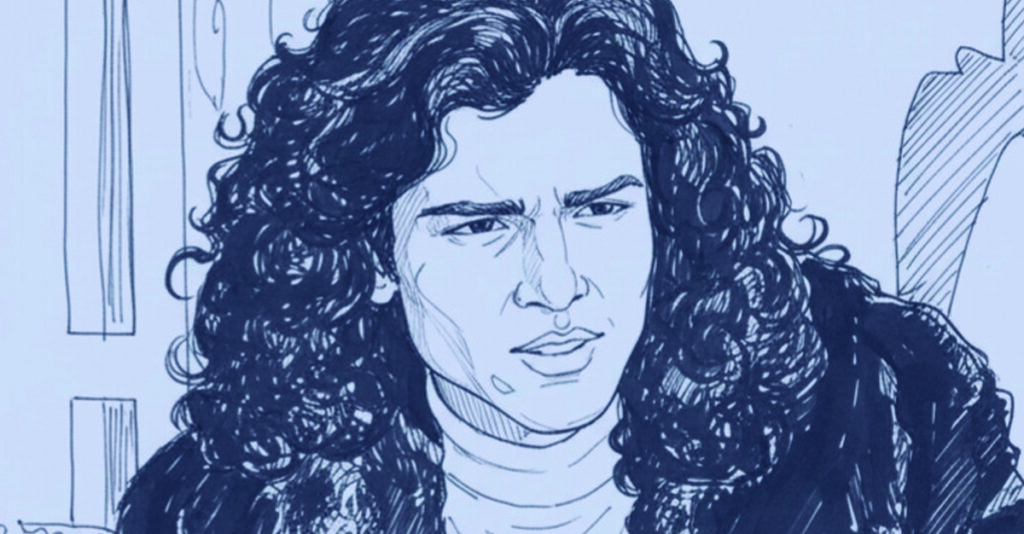Ananda Bormudoi
Issue: Vol. IV, No. 3, November-January, 2025-26

A poet appeals to the humanity in the readers. A poem asserts the worth of life and love. The happiness that a poem gives is universal. Love and sympathy in a poem can unite mankind. Such ideas come to mind while reading the poems of Zubeen Garg. He published two collections of poem but the volumes clearly show his talent as a poet.
The most striking feature of Zubeen Garg is his search for a meaning and purpose of life through his poetry. He has noticed how consumerism has changed human relationships and he wonders how lost values and relationships can be restored. In a poem titled ‘We are on the way to be Monkeys’, the poet says, “…from the mind of one to another/ From soul to soul/ From head to head/ There is a thread/ which binds the future of the earth.” This invisible thread that binds the head and the heart of man is a memorable image in the poem and the poet is thinking of mankind as a whole. He is talking not about intellectual recognition of humanity, but about feeling and understanding its work. His imperative is to touch the thread that binds one heart with another and to feel that human touch. The appeal comes from within and the poet can hear it. The human touch is godliness and its absence changes man into satan. Human values can transform man’s dwelling place into either heaven or hell.
‘Chakra’ is a short poem of just four lines. The poet here philosophically examines the cycle of birth, death and rebirth. The poet realises that nobody can be certain of an end. Life, death and rebirth may be a never-ending cycle and humanism alone can save the dignity of man in this ever-changing cycle. The ethics associated with this philosophy upholds the dignity of man irrespective of race, religion and language. An interesting poem in the collection is ‘Padadhwani’, i.e., footsteps. The poet here expresses a subtle and difficult experience in words. How the day dawns and it becomes dark after sunset are very difficult processes to describe. Zubeen Garg describes this process in his own way, “In between darkness and light/ There is a moment/ When darkness clasps light intimately/ And light reciprocates.” This intimate moment in the poem resolves all antinomies between darkness and light. This is a moment of the moment, a rare moment in which all oppositions between light and darkness, love and hate, life and death, happiness and sorrows might resolve. What follows this moment is the breathing of eternal joy. In the poet’s vision, a moment of intense feeling may extend into eternity. In Robert Browning’s poem ‘The Last Ride Together’, the lover felt likewise, “The instant made eternity.” The footsteps are a recurring image in the poems of Zubeen. In the poem ‘Anubhav’, i.e., feelings, the poet is waiting for the footsteps of beauty and eternity which would save him from self remorse.
An important theme in Zubeen Garg’s poems is the conflict between what is in time and what is out of time, what is in the cyclical change and flux and what is unchangeable. The poem ‘You’ is dedicated to the poet Hiren Bhattacharyya, Hiruda for the young generation. Human beings, committed to time and place are subject to death and decay but certain human achievements are indestructible. For Zubeen Garg, Hiruda’s poems are one such. Hiruda is undying. He begins where the world ends and he is the sun. The two poems ‘Anubhav’ and ‘Sukhanubhav’ give the readers an idea of an experience which is beyond the sense perceptions. In the poem ‘Romanthan’, i.e., retrospection, the poet ends up the search for purpose and meaning of life with the realization that man’s notions of land, ideal, work and path of life are all chaotic. Man’s desires are also conflicting. Those alive want to die and those who are on the threshold of death want to live. Unfulfilled desires do not let man sleep peacefully. He gets startled in sleep and sits up.
Zubeen Garg’s vision of life expressed through his poems is a tragic vision. The uncontrollability of human destiny makes the general condition of life unhappy. In the poem ‘Uttar Nai’, i.e. no answer, the poet informs his readers that suffering is scattered over existence in a way that it is inescapable. Suffering tells us of the basic irrationality of existence. In spite of a keen awareness of intense suffering in life and the word, the poet loves man and that inspires him to write poems. He can dream of a golden future of mankind.